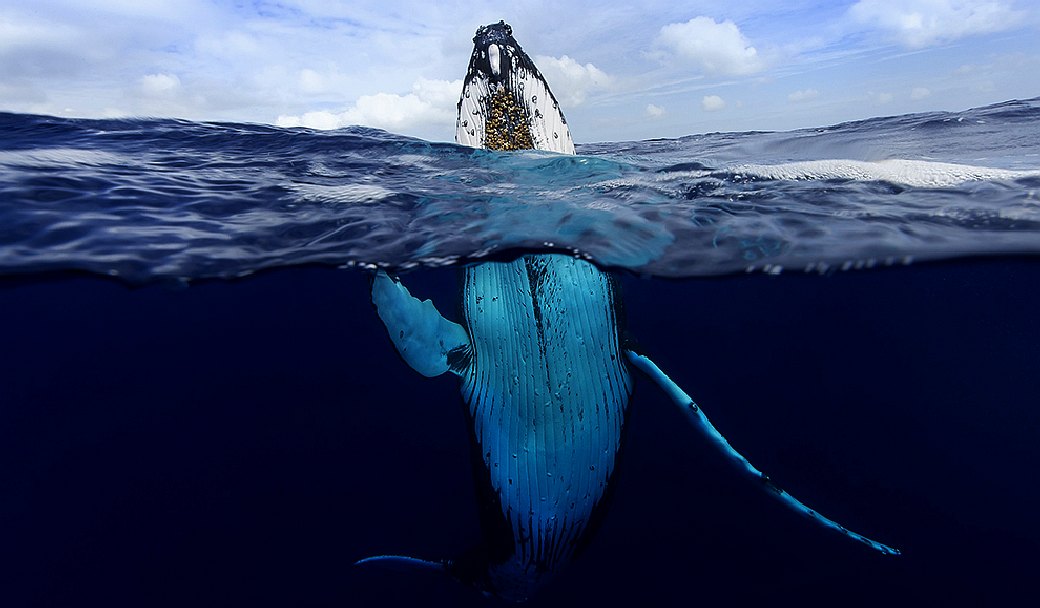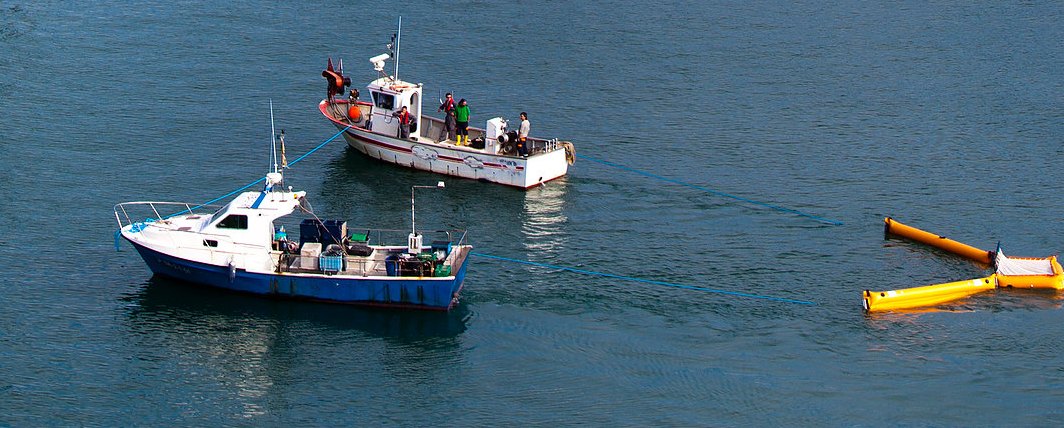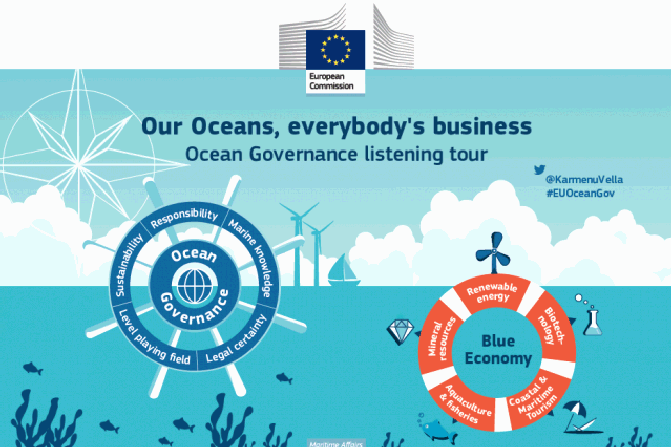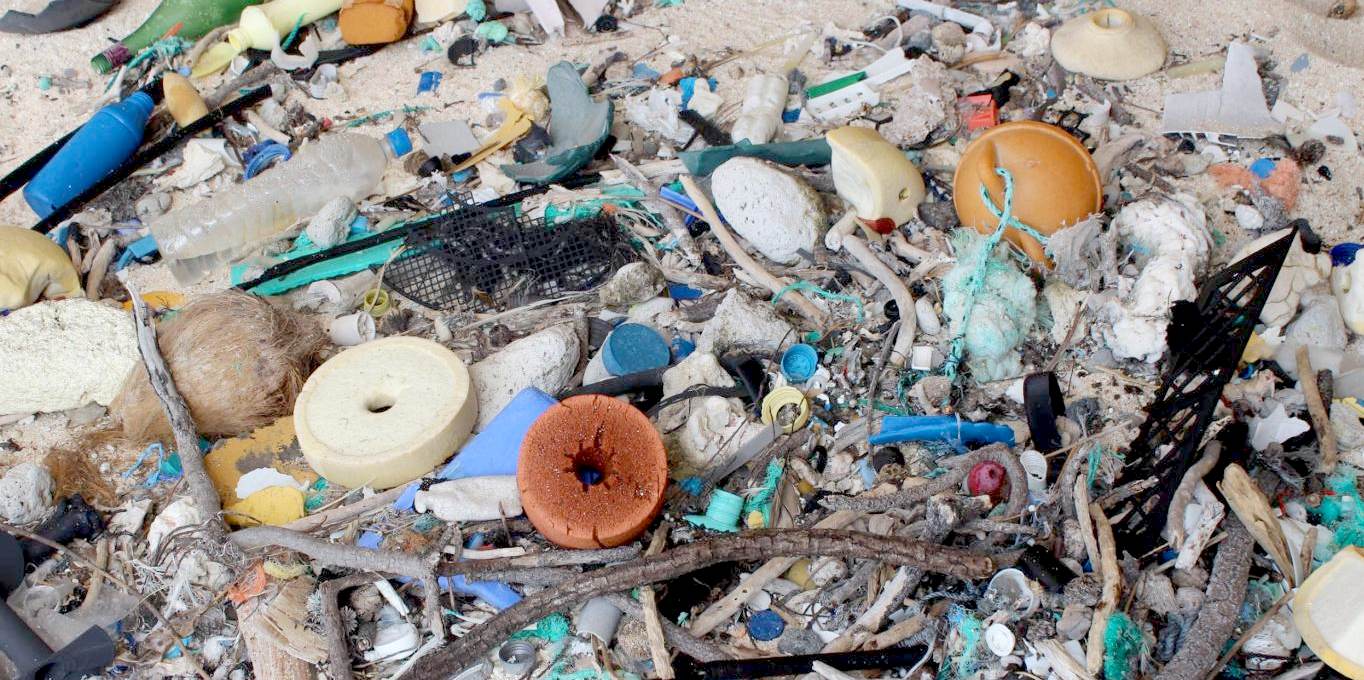|
OCEAN REGENERATION
ABOUT - CONTACTS - DONATE - FOUNDATION - HOME - A-Z INDEX
MARINE LIFE - This humpback whale is one example of a magnificent animal that is at the mercy of human activity. Humans are for the most part unaware of the harm their fast-lane lifestyles are causing. We aim to change that by doing all we can to promote ocean literacy.
The present situation with stagnant wild capture fisheries is leading many organisations, including the FAO and EU to conclude that aquaculture is the only hope for fish production to keep pace with the demand from a growing population. But the EU and FAO, nor any other governmental organization has yet taken a look at Ocean Regeneration as a serious programme to combat stagnation.
Ocean Regeneration can take many forms, but, it all depends on the public and policy makers understanding that there is a problem to begin - and then a potential solution - with which it is possible to make change happen. Only then will environmental engineers be in a position (from suitable funding streams) to work on solutions and to put potential remedies into operation for testing and evaluation. There are no funding streams for this research as we write.
The problem is that waters that are polluted with plastic, be it microbeads, microplastics or bottle caps, are infecting our wild fish stocks and stunting their growth, killing seabirds, marine reptiles and mammals along the way. It has got to stop.
IS THERE A CURE?
The next question is, is there a potential cure? At the Cleaner Ocean Foundation we believe that there is a potential solution based on many inputs, such as prevention and beach cleaning, but mainly centered around fleets of dedicated ocean cleaning vessels operating intelligently to a plan, using satellites and ocean current modeling programs to target waste.
The point we are making here is that while the International Maritime Organization, European Commission (Horizon 2020), and in particular, the United Nations with their Sustainability Development Goal 14 (SDG14) - and other bodies - now recognize that there is a problem with unhealthy oceans, as yet nobody has proposed a workable Ocean Regeneration Plan (ORP). As we are campaigning for cleaner oceans it is our duty to present possible solutions for the world to consider. We must stimulate and nurture possible remedies, and incentivise innovators if we are to achieve food security.
We must not strangle enterprise with red tape. If we do so potential solutions will be lost, because ideas men and women will choose to tread a different path where their talents are rewarded - or retire to their gardens - rather than battle civil servant puppeteers and engage in endless form filling. We need to create an easy path to encourage innovators - a 'blue tape' fast track to realise the UN SDG agendas.
PREVENTION IS BETTER THAN CURE
Up front action is better than retrospective measures, though it is held to be too late with ocean gyres in existence twice the size of Texas, in fact it is never too late to get out the broom and sweep the yard out. Where most of the pollution that is damaging our wild fish stocks is plastic related, we must think of ways of reducing single use plastic packaging and recycling spent products responsibly - aiming for 100% accountability.
ORP - RETROSPECTIVE CLEANUP OPERATIONS & FUTURE SAFETY NETS
Machines have been proposed based on a 'proof of concept' model that stand a fighting chance of cleaning our oceans by the use of selective filtration such as the SeaVax and RiverVax designs. Other proposals include trawling for plastic with fishing boats and installing giant floating booms in the open ocean like spider webs to capture floating waste using the currents in the ocean to do some of the work for us.
Other initiatives involve beach cleaning parties and ocean awareness campaigns, where fortunately, there are many people who are willing to give their time to these worthwhile activities.
HOW LONG WILL IT TAKE ?
The problem has been 45 years + in the making and the oceans are vast areas to have to tackle, but if we devise and then follow a plan of action based on volume and sweep, taking into account ocean currents, it is possible that we could see tangible improvements in as little as 5 -10 years.
Unfortunately, the oceans constantly move waste from one hemisphere to another and one ocean or sea to another. This means operating fleets in strategic locations in at least the three main oceans. It is no use attempting to clean up the Indian Ocean if waste is not targeted in the Atlantic and Pacific Oceans at the same time. On the other hand, the Mediterranean Sea could be tackled in "relative" isolation if Europe was so minded.
The sooner an operator is allowed to proceed to test a prototype to obtain performance data, the sooner we (the world) might put an Ocean Regeneration Plan into action based on fleets of production SeaVax craft. We (the Foundation) are more than willing to consider and to use other vessel designs that might perform the same function, provided that such craft are economical to operate and non-polluting - so climate neutral. If such a vessel exists that will save us having to produce our own
Please get in touch if you have a 'Proof Of Concept' vessel or other method of waste recovery that you may want us to evaluate with reference to Ocean Regeneration.
MORE SUPPORT
All of these projects are likely to have an impact when it comes to regenerating our oceans, but to make the more technological projects come to life in sufficient numbers to make a difference they will need significant investment in social enterprise fashion - where there is no customer to pick up the tab. Without a customer (end user) there can be no Business Plan and without a BP the venture cannot be capitalized. Ocean Regeneration Plans are not for profit. EU SME funding is based on profits and jobs in the short term. Ocean Regeneration is a long term undertaking.
Hence, funding is the main issue to overcome when it comes to ocean regeneration, not the technological barrier that appears at first sight to be the log-jam. Money (promissory notes and now digital transfer) is a great invention and the means to make things happen. Without the means the best laid plans will amount to nothing but good intentions.
There is no point regenerating our oceans if the fish stocks have been depleted by governments who allow (or even encourage) fishermen to strain fish populations to breaking point.
Here we are suggesting that efforts to clean our oceans and seas will be wasted if sensible quotas are not adhered to.
MAIN BLUE GROWTH AREAS
1. Ocean Regeneration - cleaning our oceans to preserve the resource and cleanse the toxic food chain 2. Aquaculture - now generates around 50% of world produce, mostly subject to wild fish feed 3. Ocean Energy - offshore wind and wave energy for clean power 4. Biotechnology - Identifying, harvesting and producing medicines 5. Coastal Tourism - To engage the public in ocean matters and reduce air travel 6. Green Ships - Cargo and cruise ships that are cleaner, preferably zero carbon
LINKS & REFERENCE
https://sustainabledevelopment.un.org/sdg14 http://www.nature.com/news/pollution-three-steps-to-a-green-shipping-industry-1.19369 http://www.ecomarinepower.com/en/green-shipping
THE INDEPENDENT HENDERSON ISLAND - Beaches of a remote British island in the South Pacific are littered with an estimated 37.7 million pieces of plastic, scientists have discovered. This is not acceptable to us and should not be acceptable to any country that uses plastics. We need urgent action to try and stem the free-flowing of single use plastics into our oceans where it destroys marine ecosystems.
This website is provided on a free basis as a public information service. Copyright © Cleaner Oceans Foundation Ltd (COFL) (Company No: 4674774) September 2018. Solar Studios, BN271RF, United Kingdom. COFL is a charity without share capital.
|




